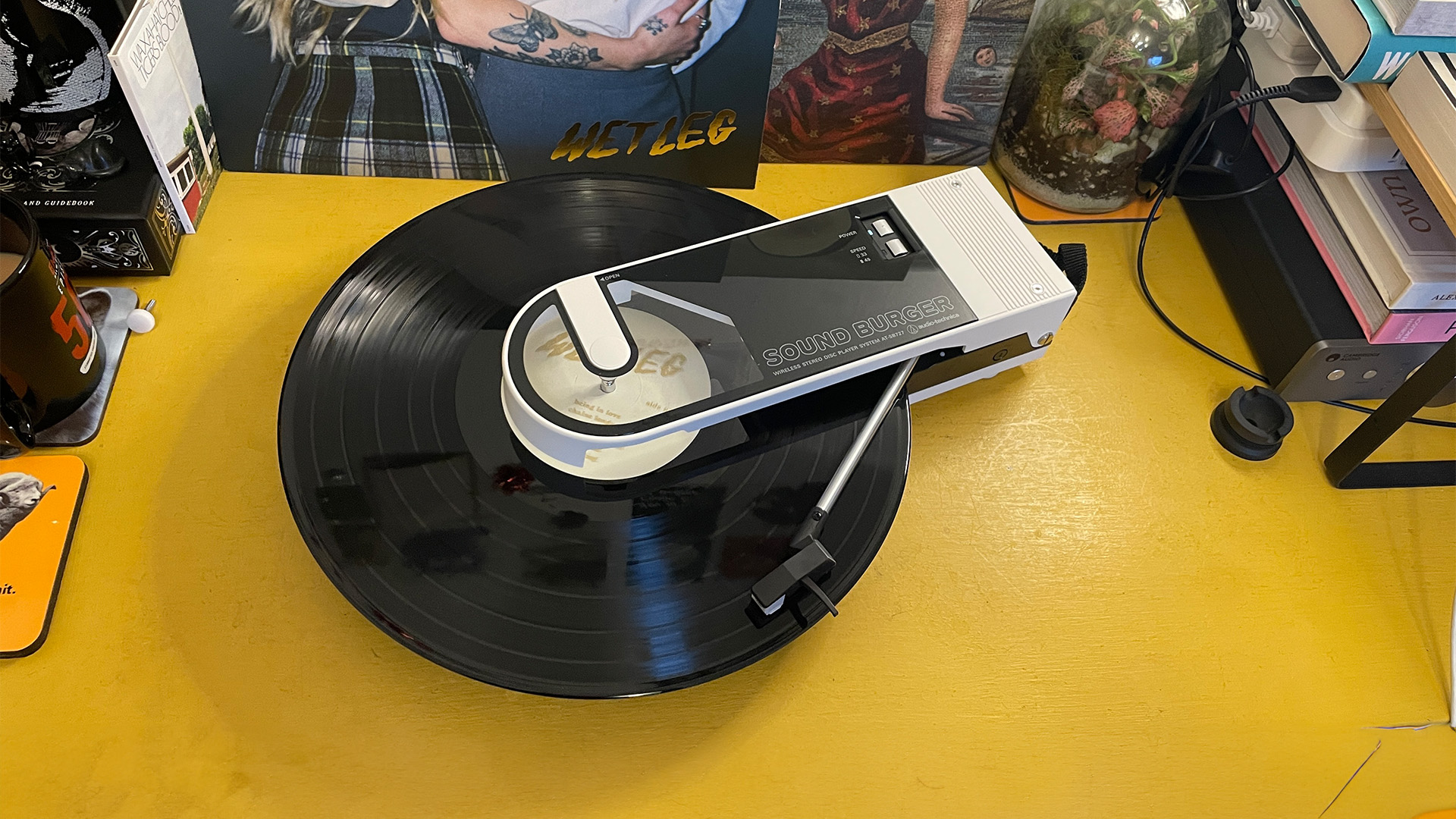Is 180g vinyl worth it? We asked several hi-fi manufacturers if a record’s weight can impact sound quality
The answers make for interesting reading...

Having a 180g sticker on your vinyl has become a bit of a badge of honour for some record labels and has led to some assumptions that the heavier the vinyl the better the sound.
Most vinyl from the past couple of decades weighs in at around the 120-140g mark, but 180g pressings have become a more regular occurrence with some heavyweight releases even hitting 200g and 220g.
But should we be classing 180g records as audiophile-grade vinyl? Is it a valid selling point that brings benefits and a better listening experience? Or has the merits of vinyl weight become a “thing” purely through some clever marketing. Is it more of a perception than a fact, or is the subject a bit more complicated than that?
We reached out to several manufacturers in the field for their thoughts on the subject – here’s what they had to say…
Does vinyl weight make a difference to sound quality?
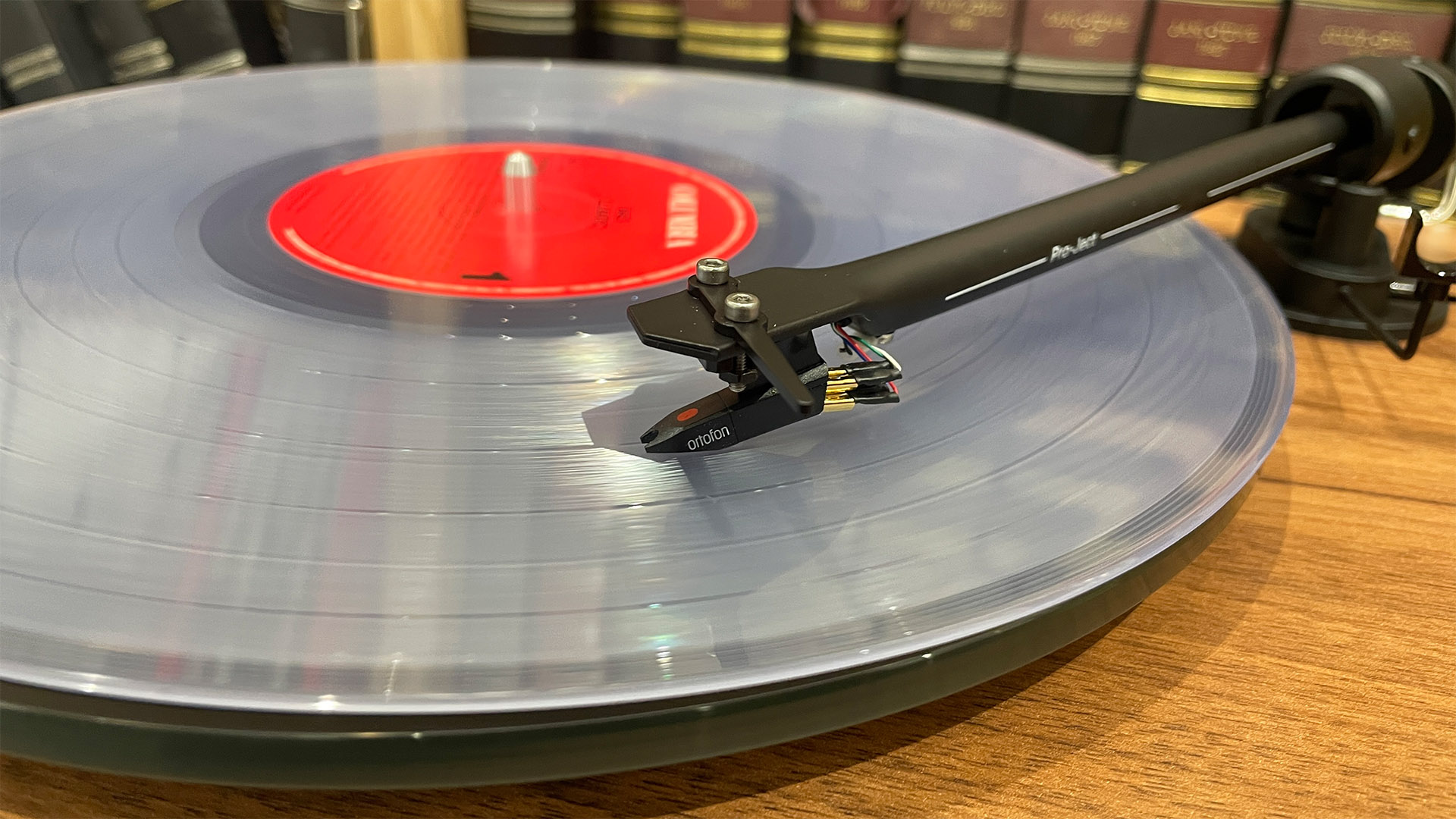
Opinion seems to be split on this subject from the off, with some believing it does have an impact...
“Ultimately, yes. From a technical theory perspective, a heavier record will have more mass, and therefore will reduce vibration transfer from the turntable motor to the stylus, which will be better for sound quality. There are, however, many variables within this in the real world, but the technical theory supports it.”
Edward Forth, global brand projects and partnerships manager, EMEA, Audio-Technica Europe
Get the What Hi-Fi? Newsletter
The latest hi-fi, home cinema and tech news, reviews, buying advice and deals, direct to your inbox.
“Yes, for one simple reason… stability! We want that disc to be a stable 'counterweight' for the work that the stylus is doing. Imagine if we had a disc with “no mass”, then the stylus would just “move the disc around” while tracing the groove. This is a very exaggerated example, but it shows that a heavier record will give us some 'hold' for the stylus.
"The higher the mass of the disc the better a “reaction mass” we have to the stylus forces, and therefore we get a better sound with no loss.
"It’s a further interesting point to note that heavier records will bring more benefit to more affordable turntables, where the performance of the platter may be more limited. On a high-end turntable like my TechDas, the vacuum and platter make a lot of difference and I can play 100g records with amazing sound quality.”
Leif Johannsen, chief of acoustics and technology, Ortofon
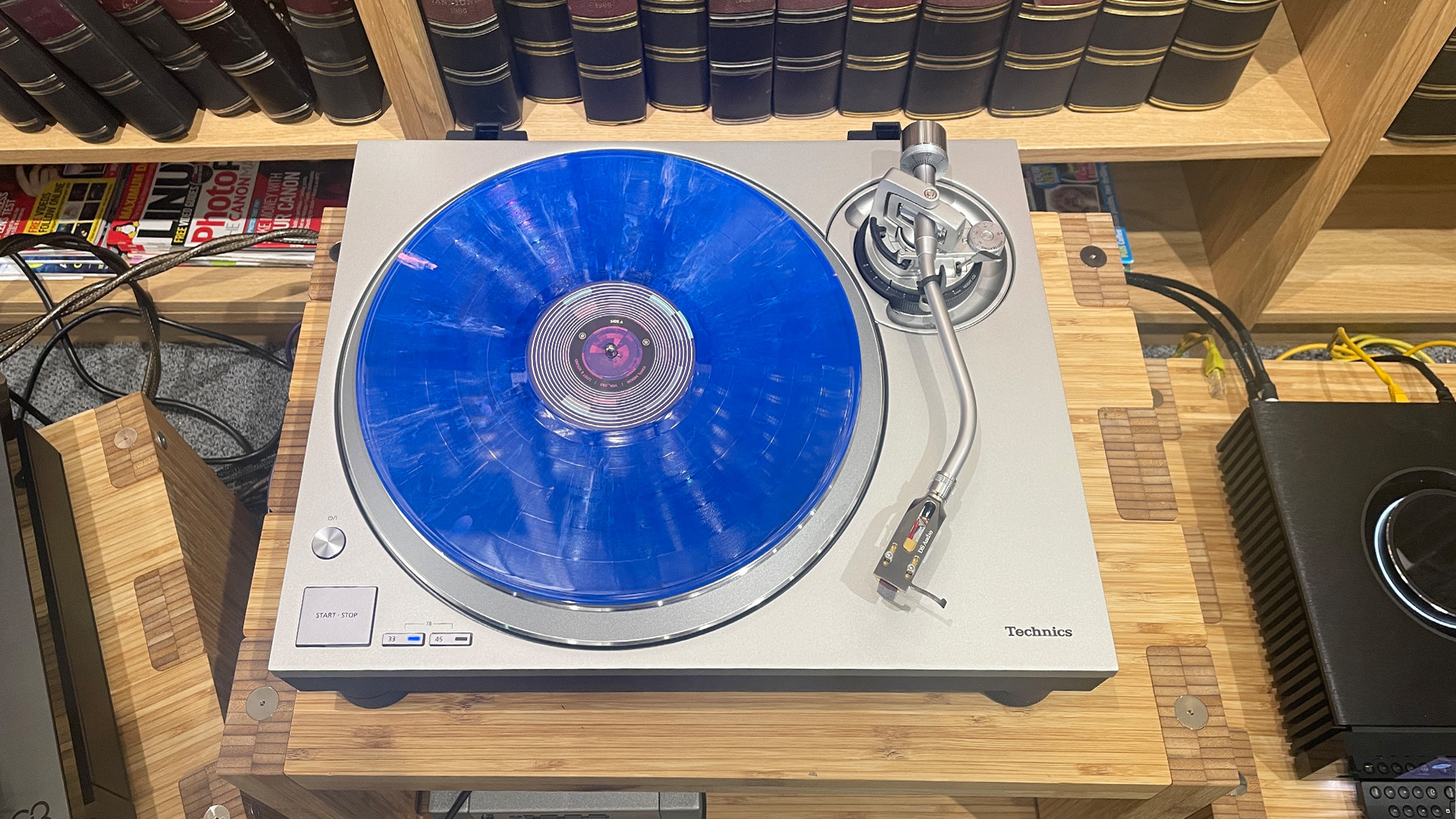
“Yes: the difference between 180 gram and lower-weight vinyl can be quite audible. Since the slimmer vinyl has less material available, there are theoretically more resonances during tracking, which negatively affects the tracking process.
"More material may mean lesser resonance, which results in a more precise overall sonic presentation, with less unwanted noise or stress.”
Robert Suchy, CEO, Clearaudio
Heavier records will bring more benefit to more affordable turntables, where the performance of the platter may be more limited.
Leif Johannsen, Ortofon
However, others are less than convinced that a difference in weight can add or remove anything from the sound...
“In simple terms no, you can have excellent 180g pressings and poor 180g pressings. The main advantage of heavyweight vinyl is durability and less likelihood of warping. If you look after your vinyl and store it properly, the vinyl weight should not come into play.
"The groove depth is similar (and set by the cutting engineer), so if the original recording and mastering is good, then the sound should be high quality. Perhaps in the early days, a little more care was taken over the production of 180g vinyl; however, in modern times, there is also an element of marketing and re-pressing with releases on 180g to increase sales.”
Simon Webster, sales and marketing co-ordinator, Rega
“Technically, there should be nothing that the weight of the vinyl contributes to the sound or removes from it. The magical term of '180g vinyl' merely describes the maximum allowable size for a run-of-the-mill record from the 1960s. As long as the record is flat and the groove is exactly concentric with the centre, the thickness of the record should not contribute to any variance in speed stability – wow and flutter –either.”
Jon Jeary, electronics engineer, Goldring
“From a purely audio perspective, the weight of a vinyl record does not directly affect sound quality, assuming the records are pressed from the same master and produced with equal care. A 120g and a 180g record can sound identical if all other variables are controlled.
"The notion that 'heavier equals better sound' is largely a myth. That belief likely stems from the fact that many 180g pressings are part of premium reissue campaigns, which often use superior masters and higher-quality pressing processes. So when people hear a difference, it's usually the mastering or pressing quality they’re noticing, not the weight.”
Lothar Mertens, sales and marketing turntables, DUAL GmbH
“I don't think the weight itself has much of an effect on the sound quality, but I think what does have a significant effect on the sound quality is the increased thickness and rigidity of a heavier record.”
Tetsuya Itani, technical expert for Technics at Panasonic Japan
Is there an optimal weight for vinyl?
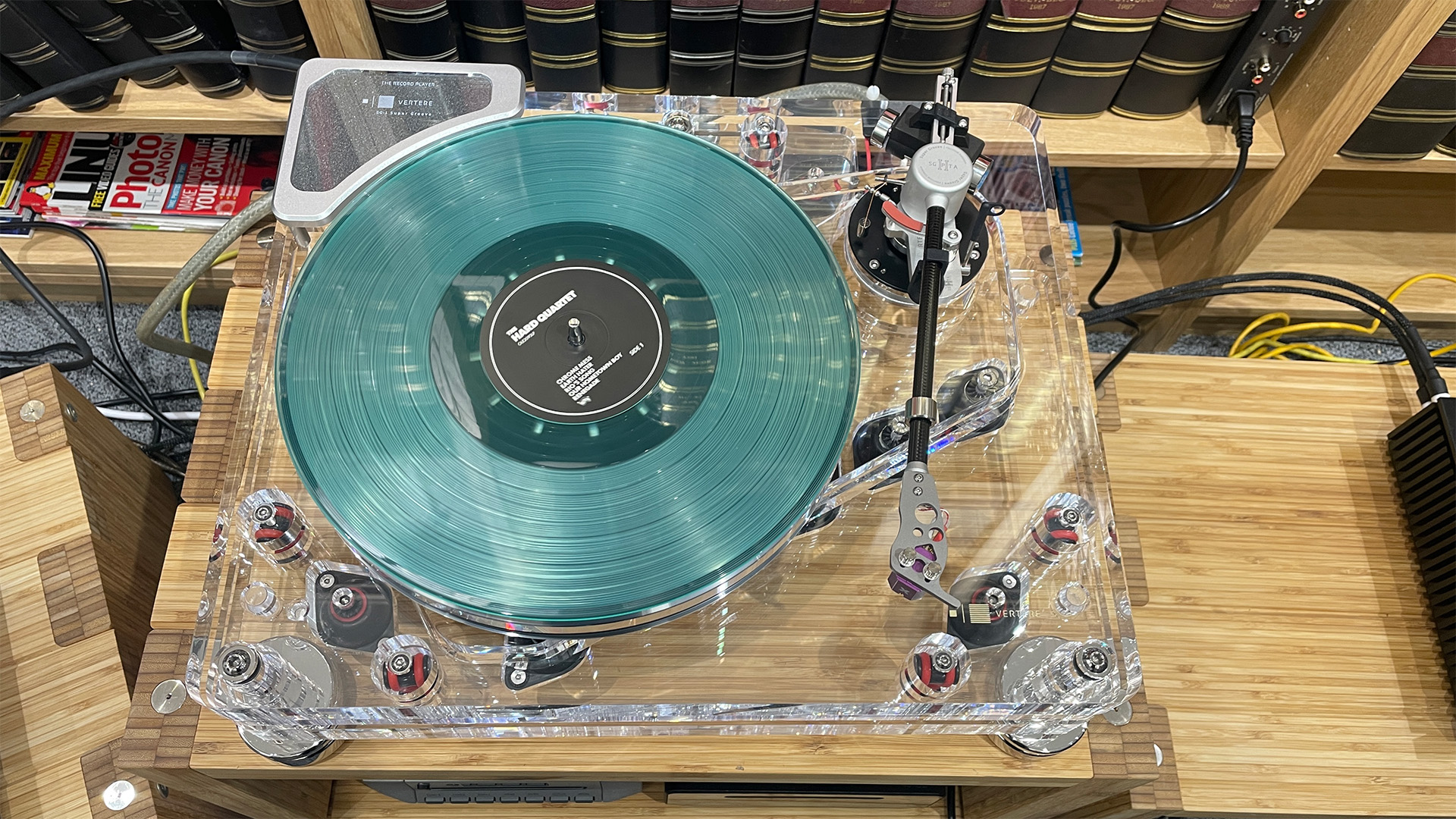
Is there a magic number? It seems there's a general agreement that heavier vinyl does give a higher level of user satisfaction than cheap, lightweight vinyl.
180g seems like a good compromise, but as many of the manufacturers note, the quality of what you get from a record depends on the quality of its production.
“Starting with the basics, it is obvious that there is a huge tangible difference between the floppy mass-produced vinyl from the late-’70s/early-’80s, and a nice thick 150-200g disc.
"Even if there were no other difference, customers would go for the quality feel of the thick disc. We must remember that vinyl is a lot about feeling and tangibility.
"I did, on purpose, say 150-200g, because I personally think that well-produced discs in that mass range are sort of equally good. But as one side-point, it’s also important to remember that production of 'thick' records can also be more sensitive, so careful quality control is vital. The cooling process after pressing is critical, and if not done the right way we will have warped records!
"Many audiophiles have been impacted by poor quality production of thicker discs over the years.”
Leif Johannsen, Ortofon
“Different weights have different advantages and disadvantages, so an optimal weight would depend on your priorities. Heavier records have the technical advantage of mechanical vibration reduction, and also benefit from a reduced tendency to warp in less than perfect storage conditions, but by their nature are more expensive.
"Ultimately, the real decider when it comes to sound quality are factors outside of the record weight. Has it been recorded well, has it been mastered correctly, has it been cut well, were there any issues in production etc?
"A really well-recorded and produced 140g record is always going to sound better than a badly recorded and produced 200g record. Record maintenance should also be considered. If a 140g record becomes warped, there is a process that can be applied to return the record to its original state – with 180g or above, this is not possible.”
Edward Forth, Audio-Technica Europe
We must remember that vinyl is a lot about feeling and tangibility.
Leif Johannsen, Ortofon
“Even heavier-weight vinyl could be an interesting thing to explore, but 180g is a good standard at a reasonable price to manufacture.”
Robert Suchy, Clearaudio
"I like heavyweight vinyl mainly because it gives the impression that it will be of higher quality. If I have spent a fortune on a new record – Elbow’s Seldom Seen Kid for instance – I would much rather it came on two 180g discs running at 45 RPM than a single floppy 120g LP running at 33 RPM.
"I know, though, that it’s the playing speed that contributes most to the increased bandwidth and the quality of the plastic – virgin vinyl is best – that contributes to the lower noise floor and not the weight of the vinyl.
"However, my subjective enjoyment is nevertheless increased by the knowledge that the record is a full-weight standard disc."
Jon Jeary, Goldring
A greater perception of quality

The record industry seems to have landed on 180g as the figure for higher quality vinyl, and some manufacturers believe this is not only sonically beneficial but also gives the customers quality reassurance in other ways.
“If an artist/label/company has gone to the effort to press their vinyl on a 150-200g disc – often this is also a sign of 'care' and an eye for 'quality' throughout. This is therefore a good sign that they’ve taken care of all quality aspects throughout the recording and manufacturing processes.
"So, having a 180g record gives the customer a guarantee that the record has been produced with utmost care in all ways.
"So yes, it should sound better! And the remark I started with about the tangibility of a record is also part of this… like receiving a nicely printed heavy gatefold cover with nice inner sleeves. We are suckers for these kinds of quality products”
Leif Johannsen, Ortofon
“180g vinyl offers sonic benefits without a prohibitive cost of production. But heavyweight vinyl can’t make a poor recording sound good, and previous experiments with thicker vinyl have not brought improvements, either. As ever, a high-quality recording makes the biggest difference – it’s the key foundation for great-sounding vinyl, followed by good mastering and pressing.”
Robert Suchy, Clearaudio
“180g would be my record weight of choice, as long as all of the external parameters that affect the record have been at the highest quality. One cannot say that it will always sound better, as it is just one part of the overall record-making process.
"The sound is much more down to the human factors in the recording and manufacturing process of a record. If you were to take a 140g pressing and 180g pressing from the same stamper, in test conditions the 180g should technically sound better, but sound is a very subjective thing!”
Edward Forth, Audio-Technica Europe
Heavyweight vinyl can’t make a poor recording sound good.
Robert Suchy, Clearaudio
"The best sounding record in my collection – and I have over 1000 vinyl LPs – is Supertramp’s Crime Of The Century on a half-speed master, which is pressed on 120g vinyl. I did not know how heavy it was before responding to this question and had to go off and weigh it.
"Its quality has nothing to do with the weight of vinyl, but it is pressed on high quality, very quiet vinyl – giving it improved signal-to-noise ratio – and was mastered at half speed, adding higher bandwidth, which are the main contributors to the sound quality outside of the original mixing and mastering done in the 1970s."
Jon Jeary, Goldring
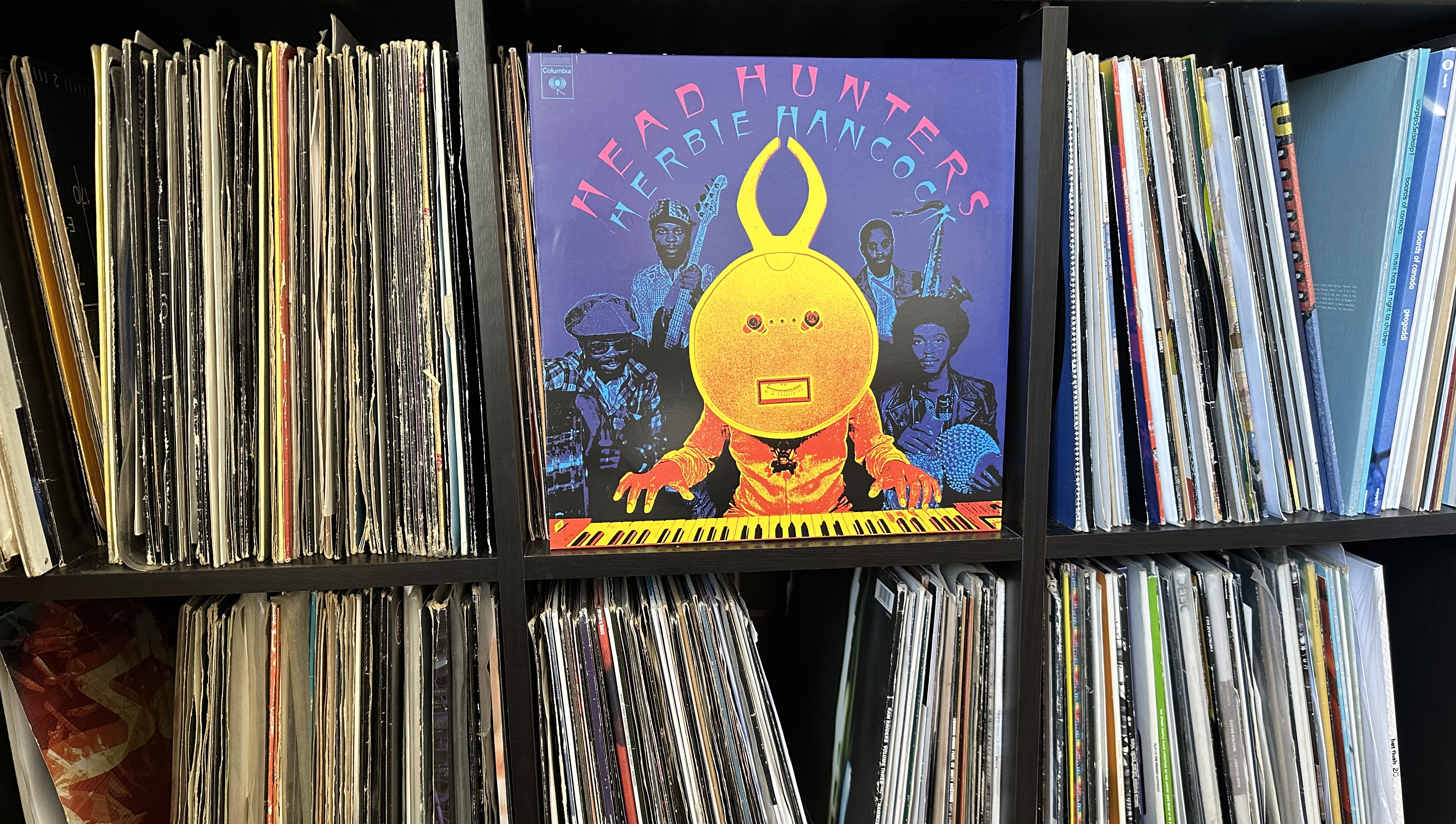
“180g has become the de facto audiophile standard, offering a nice balance of durability and perceived quality. The 200g pressings are more of a niche, aimed at collectors. While they feel impressive in hand, they don’t necessarily sound better.“
Lothar Mertens, DUAL GmbH
“The deflection of the record during playback causes the needle to vibrate up and down, which creates stereo inverse component noise and blurs the sound image. 180g vinyl has an advantage over 120g vinyl in this respect.
"However, and this is my opinion based on personal experience, but I feel that 180g discs are more prone to static electricity generation than 120g discs. I think this may be due to the fact that the amount of resin used in the 180g vinyl is larger than in the 120g, but I do not know the true reason.
"In any case, the 180g disc should be handled with care.”
Tetsuya Itani, Technics at Panasonic Japan
So there you have it. Interestingly, there doesn't seem to be a consensus on the subject of the ideal vinyl weight and its actual impact on sound quality.
However, the manufacturers we've spoken to all agree on one thing – that the most important factor is the quality of the recording in the first place and the care taken during the mastering/pressing.
There also appears to be agreement that the feel and appearance of heavyweight vinyl gives the perception that you're getting a higher quality product for your money.
But whatever the weight, if it makes you feel like you’re having a better experience, and puts a smile on your face every time you slide it out of the sleeve and place it on your record player, then isn’t that what matters?
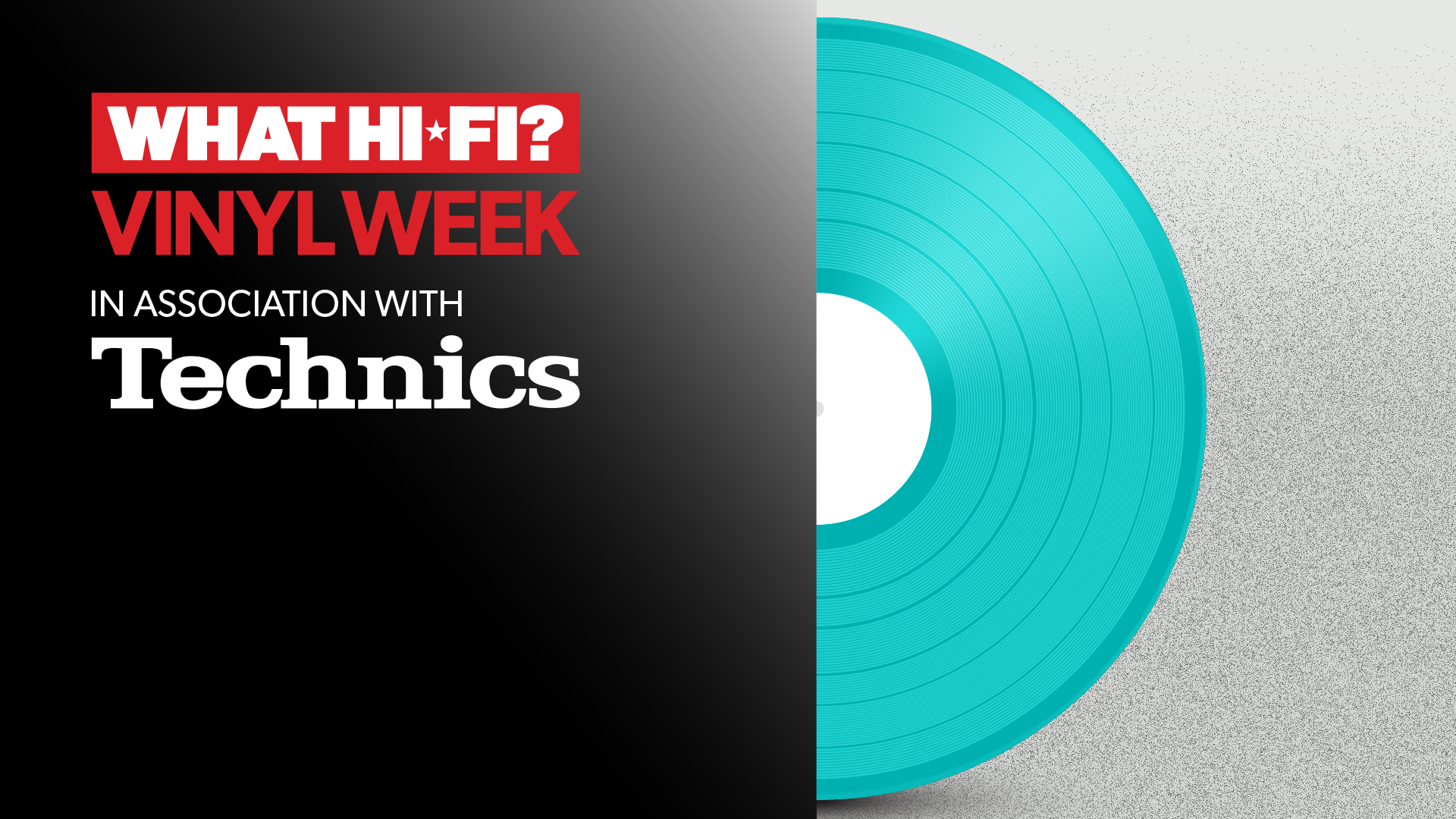
MORE:
Buying your first record player? Here are 8 questions you should ask yourself
5 special edition record players that demand to be seen and heard
Our pick of the best turntables you can buy
Andy is Deputy Editor of What Hi-Fi? and a consumer electronics journalist with nearly 20 years of experience writing news, reviews and features. Over the years he's also contributed to a number of other outlets, including The Sunday Times, the BBC, Stuff, and BA High Life Magazine. Premium wireless earbuds are his passion but he's also keen on car tech and in-car audio systems and can often be found cruising the countryside testing the latest set-ups. In his spare time Andy is a keen golfer and gamer.
You must confirm your public display name before commenting
Please logout and then login again, you will then be prompted to enter your display name.

